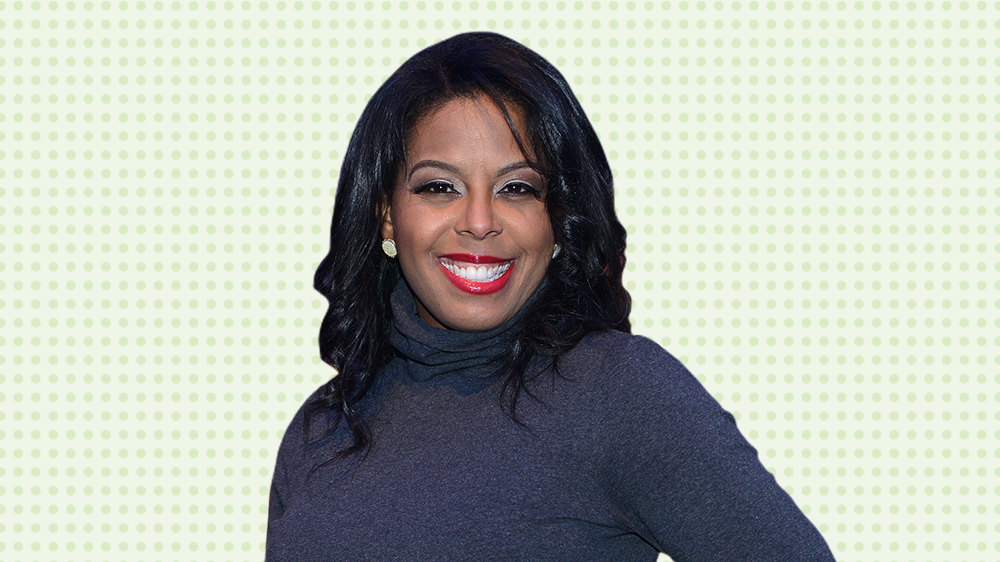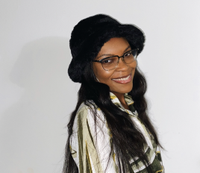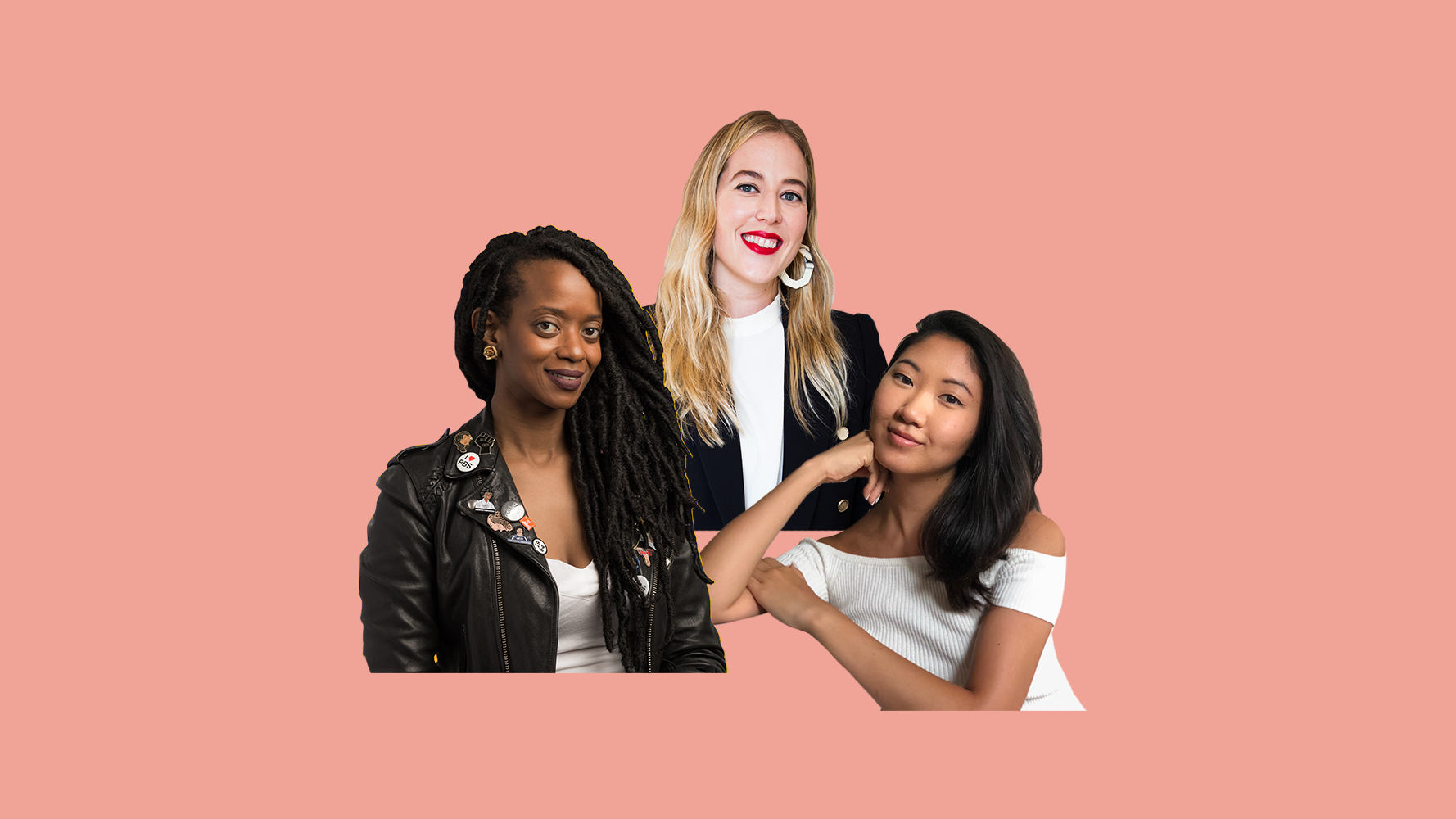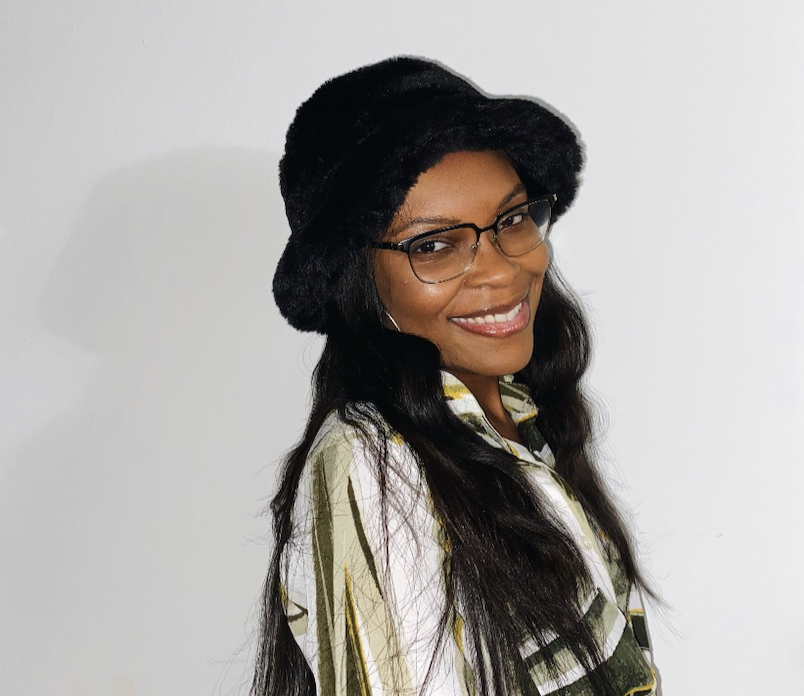Dia Simms Helped Build Diddy's Empire. Now She's Taking on the Cannabis Industry
Sean Combs' longtime right-hand woman shares why she left Combs Enterprises to launch her own business.


With an envy-inducing title—president of Combs Enterprises—and an even better off-duty one—Sean Combs' protégé—Dia Simms has made a name for herself building the rap king's business empire over the past 14 years. Now she's starting a new adventure: disrupting the cannabis industry. Here, she talks to Marie Claire about making her mark in every industry she touches.
Marie Claire: In 2017, you were the first person to assume the role of President at Combs Enterprises. Did that scare you?
Dia Simms: The fortunate part about having been there for 14 years was that the promotion wasn’t scary because I had been thinking about the products every day. You’re always looking to your left and your right thinking, “How can we be better and go into this particular business initiative?” So, it was a massive opportunity.
MC: When did you start there?
DS: I started October 5, 2005 at 8:07am. It was a week after I turned 30, so I will always remember.
MC: What are you most proud of accomplishing during your time at Combs Enterprises?
DS: When I was promoted to President, I worked on exactly what our culture was going to stand for. The culture deck that I rolled out to the team talks about the company being an “asshole-free” zone. That we use “please.” That we’re going to work hard but we can be civil. You have to be able to say, “Okay, I work with people who I respect and who respect me.” So I’m extremely proud that we were able to implement a culture with that spirit.
Get exclusive access to fashion and beauty trends, hot-off-the-press celebrity news, and more.
And before I had my actual daughter, my very first baby was Ciroc Vodka. Diageo [which owns Ciroc] had the Ciroc brand for five years and it wasn’t doing particularly well. Sean and I and our pretty small team came in and turned the brand around and saw 1,000 percent growth in the first year. It was incredibly rewarding.
A post shared by Dia Simms (@diasimms)
A photo posted by on
MC: With the culture of the “asshole-free zone” in mind, did you find it hard to navigate the many predominantly male spaces you encountered throughout your career?
DS: I started my career at the Department of Defense, which was incredibly male-dominated. From those meetings when I was a 21-year-old woman to now—I just turned 44—there has not been a huge difference in the fact that I tend to be the only woman in the room.
I used to be a promoter in my 20s. And at that time, if you were a woman in a nightclub, you really had to watch and be like, “Don’t hit my butt. Don’t touch me.” But I noticed that if I had a clipboard in my hand, I would instantly garner a different level of respect. The truth is that I shouldn’t have had to have a prop in my hand to be treated with respect, but it was more of a way to establish that I was there to work. I would literally hand out clipboards to all the women and club promoters that I worked with and it made everybody's night much easier. In the meetings that I’m in now—which, to be clear, I was still the only woman up until this week—I do still bring that philosophical clipboard effect to the table. And that, for me, has worked well.
I’ve had white male CEOs pull me to the side and say, “We want to do a better job but we don’t know a lot of other diverse executives.” And instead of being offended by it, I just say, “Let me help you. Let’s have an honest conversation about why when I walk through your hallways, I’ve noticed you’re right. You need some more diversity. You need some more young people. Let me actually help you and explain how to get there.”
MC: This week, you announced that you left Combs Enterprises to launch the BRN Group, a brand and distribution consultancy for cannabis companies. What excites you about this change?
DS: There’s an economic shift that’s a once-in-a-millennium type of thing where this exploding industry in North America is an opportunity for all of us to create real change, real jobs, real legacy wealth for families. I couldn’t just sit on the sidelines and not be a part of it. And to the point about diversity, there are still very few women in leadership in the cannabis industry, and very few minorities. It’s incredibly disproportionate when you have somebody in one state who’s in jail for something and then in the next state someone is making a lovely profit [for the same thing]. I grew up with the understanding that if you want to change something, you have to be a part of it. So, part of what we’re endeavoring to do at the BRN Group is to ensure that the brands that we build, who I hire internally, and, hopefully, who we influence to be hired in the industry will represent the population that we serve.
Let’s start from scratch and build a new economy that represents what America is really about.
MC: Why the move from Combs Enterprises to BRN Group at this moment specifically?
DS: I felt that the cannabis industry was something I had to be a part of. Also, it’s exciting to have the opportunity to work as a true CEO and a real owner. I’ve always been interested in entrepreneurship and I got the world’s greatest training for 14 years with Sean “Puff Daddy Diddy Brother Love” Combs. Plus, my 6-year-old daughter is watching every step I take.
This is an opportunity where I get to take all of my learnings from building lifestyle brands and bringing them into a burgeoning industry where there’s an absence of people who understand how to look towards the future and build brands that are tech savvy. That’s what the BRN Group represents and part of the reason why I made the leap.
MC: So why cannabis?
DS: I had been looking at this space for a few years at Combs Enterprises. My mom suffers from multiple sclerosis, and has since I was 9-years-old. She is in chronic, debilitating pain 24-hours a day. When she got her medical license in the state of Maryland, she was like, “I can finally sleep through the night.” Now that’s a focus group of one, but it was a powerful one because it’s my mom. It really taught me this thing is really working. This is an opportunity to bring something to the forefront that does good for people personally, as well as economically.
MC: What you said earlier about people being in jail who shouldn’t be—does that make you hesitate about entering the industry?
DS: I see changes happening zip code by zip code and state by state. And I don’t want to sit and hope that changes happen. I want to determine how this company can be a part of leading the way. When [policy] changes happen, who’s going help train people, who’s going to take a chance and hire somebody who’s been in this industry? We’re in a different position where we’re able to say, “Yeah, you were in an industry in something that wasn’t legal, which is now legal. Come work with us at BRN Group!” If there is an opportunity to hire, to lobby, to build the right level of education—even about CBD, because there’s a lot of confusion about what it even is—I’m not hesitant at all. I’m 100 percent all-in.
A post shared by Dia Simms (@diasimms)
A photo posted by on
MC: What do you see as the future of the cannabis industry and its legality across the country?
DS: It’s here to stay. The level of effort and activity that you can see happening in North America and really all around the world, it’s not going anywhere. And as we continue to explore other options in topicals, in ingestibles, in pain relief, in potentially anti-inflammatory and anti-anxiety uses, there is a wealth of opportunity to serve consumers. We’re on month one of a multi-century run.
MC: What will your group bring to the industry that we haven’t seen before?
DS: We’re rooted in cultural cannabis. What we can provide is everything that’s needed to market from strain to store. We’re basing BRN on three pillars: branding, distribution—direct distribution in Canada and the U.S.—and then the tech piece. We have a best-in-class team working to build what the e-commerce platform for our space will look like in the future. I haven’t yet seen one business that has all that level of expertise in one place. So if you’re an organization that has a great product, you need to understand how to turn it into a phenomenal, sustainable brand, with a clear route to market, how to get into stores directly, and how to be sold online. That’s the clear advantage that the BRN Group brings.
MC: Will you still be involved with any Combs Enterprises brands?
DS: So “Bad Boy For Life” is not a game. You can get in, but you can’t get out. I will always be involved. I am remaining on the board of Capital Prep, which is Sean’s school with locations in Connecticut and Harlem, and we just got approved to open a new school in the Bronx. All the years I worked for Sean, he always said there is absolutely nothing more important than building these schools for these children. So, as long as I can, I’m happy to be involved for the next 70 years.
MC: Any advice for those interested in pursuing a career in the cannabis industry
DS: Think about being as intentional as you can when building a diverse platform. I’m specifically talking about the cannabis industry in this conversation, but in general, it does worry me that we’re in a world that’s becoming increasingly divisive. So I encourage us to think through how we’re supportive of our diverse counterparts. If you have an opportunity to hire, make sure you have a diverse pool. In an industry like cannabis, we have the chance to build it from scratch and not inherit any legacy issues. Let’s start from scratch and build a new economy that represents what America is really about.
For more stories like this, including celebrity news, beauty and fashion advice, savvy political commentary, and fascinating features, sign up for the Marie Claire newsletter.
RELATED STORY

15 Women to Watch in the CBD Industry
Juliana Ukiomogbe is a freelance writer. Previously, she was the Assistant Editor at ELLE; her work has also appeared in Architectural Digest, Allure, Glamour, Interview, and more.
